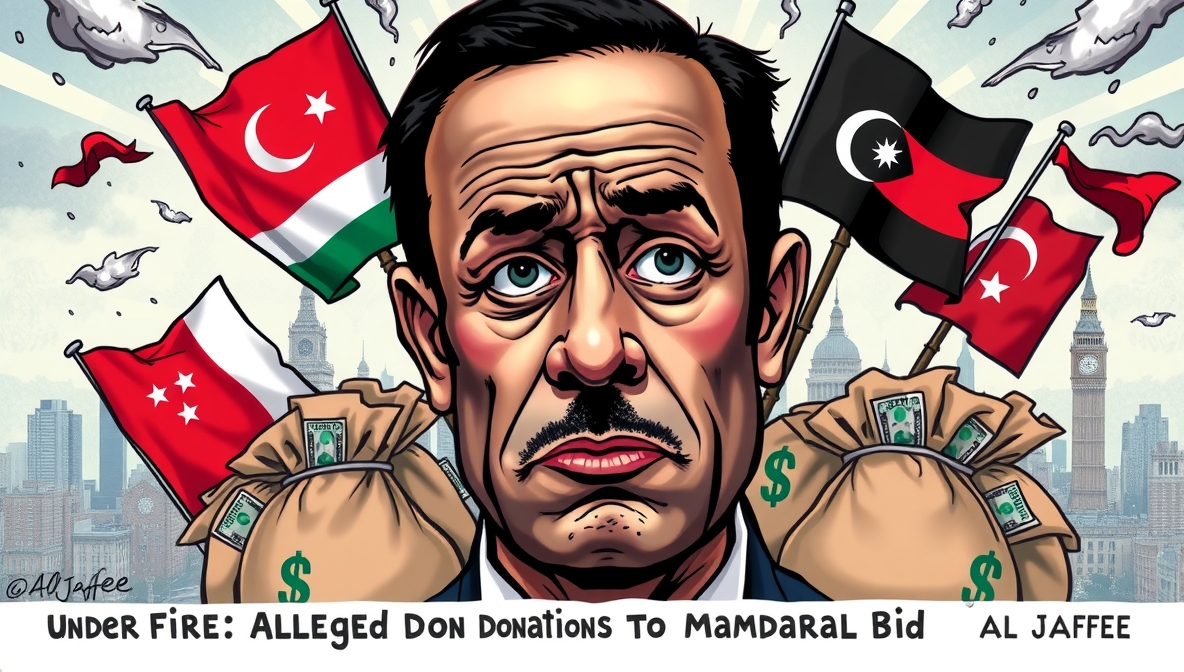Mamdani’s Unexpected Indulgences: Dubai Chocolate, the World’s Most Expensive Beer, and Anchovy Pizza
New York City — At a time when political figures are scrutinized for every purchase, Councilmember Zohran Mamdani has drawn attention for something far from legislative controversy: his developing taste for some of the world’s most unusual and costly culinary luxuries. According to individuals close to his office, Mamdani has recently developed a well-known fondness—some aides jokingly call it “an addiction”—to premium Dubai chocolate, imported craft beer priced among the most expensive globally, and anchovy-topped pizza from specialty New York pizzerias.
While none of these choices violate ethics policies or campaign finance rules, the combination has captured curiosity among supporters and critics alike. In the era of transparency and online speculation, even personal tastes can become political stories.
The Dubai Chocolate Obsession: Luxury Confections From the Middle East

Multiple associates confirmed that Mamdani frequently orders luxury chocolate from Dubai-based manufacturers who supply exclusive boutique shops in Doha, Riyadh, and Abu Dhabi. The chocolates, often featured at culinary festivals in the Gulf, can retail for between $35 to $80 per piece depending on flavor and gold-leaf packaging.
Two aides, who requested anonymity because they were not authorized to discuss food habits publicly, described regular shipments arriving to Mamdani’s office. “It’s not unusual to see a diplomatic-looking parcel that turns out to be chocolate,” one staffer said.
What Makes Dubai Chocolate So Expensive?
High-end Dubai chocolates gained international attention for their intricate preparation: single-origin cocoa, saffron and cardamom infusions, and edible 24-karat gold used as garnish. Culinary writer Amira Hassan, who covers Middle Eastern luxury confections, said it isn’t surprising to see public figures gravitating toward the trend.
“Gulf luxury chocolate has become a status symbol in political and business circles,” Hassan said. “It’s like the modern equivalent of fine cigars. Instead of a humidor, people have climate-controlled chocolate cases.”
No public record indicates taxpayer funding or campaign contributions used for these purchases. One staffer insisted the councilmember pays personally, calling the habit “expensive, but strictly private.”
The World’s Most Expensive Beer: A Rare Acquisition
Several friends familiar with Mamdani’s social circle stated that he has acquired bottles of limited-production European craft ales, including editions often cited as some of the most expensive in the world. Among them is the Belgian-brewed “Vieille Bon Secours,” sold in specialty bars for more than $1,000 per bottle, depending on vintage and import costs.
Liquor historian Kevin Nolan explains the cultural fascination with high-cost beers.
Why Collectors Pay Premium Prices for Craft Beer
“It’s not just about alcohol,” Nolan said. “Collectors value the fermentation process, the yeast strains, and aging techniques. Some of these beers are produced in micro-batches, cellared like wine, and bought by connoisseurs or investors.”
A friend who attended a small gathering said Mamdani once presented such a bottle as a celebratory gesture at a private dinner event. “It wasn’t flashy,” the guest recalled. “It was more like someone sharing something they really enjoyed.”
Political consultants note: personal luxury purchases only become politically significant if they conflict with public messaging. There is, so far, no evidence of contradiction between Mamdani’s platform and his culinary interests.
Anchovy Pizza: A Simpler Obsession With an Old-World Reputation

If Dubai chocolate and $1,000 beer suggest exclusivity, anchovy pizza represents a much more grounded taste. Several pizzerias in Queens and Brooklyn say Mamdani has ordered anchovy-topped slices or pies, sometimes anonymously, sometimes openly.
One Queens shop owner said anchovy orders increased noticeably after Mamdani posted a photo eating a slice earlier this year. “We had people come in and ask for ‘the Mamdani slice,’ even though it wasn’t officially on the menu,” he said.
The History and Controversy of Anchovy Pizza
Anchovy pizza often divides opinion; surveys show it ranks among the most controversial toppings in the U.S. But food historian Micah Turner says anchovies have a long relationship with Mediterranean cuisine and immigrant food culture.
“Anchovy pizza has roots in Southern Italy and coastal fishing communities,” Turner explained. “It’s salty, savory, and historically associated with working-class dietary staples. It’s not a luxury item—it’s tradition.”
Some observers see symbolism: a political figure drawn to both the elite and the ordinary. Whether coincidence or culinary philosophy, it reflects a range of tastes that do not fit a single stereotype.
Public Reaction: Interest Without Scandal
Thus far, the public response has been more amused than judgmental. On social media, supporters joked about “legislating chocolate rights” or “beer taxes for collectors,” while critics argued—without evidence—that expensive imported sweets contradict populist politics. None of these claims involve policy breaches, and no ethics experts have raised concerns.
Campaign finance records show no chocolate or alcohol expenses billed to donors or city funds. Consumer purchases made with personal income remain beyond political regulation.
How Personal Tastes Shape Political Image
Political analyst Lauren Medina says the conversation highlights how non-political details about public officials increasingly become news stories.
“We live in a moment where voters are intensely curious about the personal lives of those in public office,” Medina said. “Food habits, hobbies, even favorite sports teams become part of a politician’s public image.”
Private Life, Public Curiosity in Modern Politics
Requests for comment from Mamdani’s office were not returned, but his past statements emphasize transparency and modest living. Those familiar with his habits insist the indulgences do not reflect extravagance but personal taste.
None of the items, individually or collectively, appear to violate financial disclosure rules, city ethics codes, or campaign laws.
A Human Detail, Not a Political Crisis
At a time when national headlines feature investigations, indictments, and governance disputes, a story about chocolate, beer, and pizza may seem light by comparison. Still, such anecdotes often humanize public figures in ways official speeches cannot.
For now, Mamdani’s culinary interests appear to remain just that—interests, not controversies.
If the only thing his opponents can criticize is imported chocolate and a salty slice of pizza, it may suggest political battles have reached calmer territory—at least temporarily.
If you want, I can also produce a second companion article—same newsroom voice—on how his supporters turned “anchovy pizza” into a small cultural trend, or how Dubai sweets became a political internet meme.
Just say the word.




The foreign policy establishment views the rise of Mamdani with deep concern.
Mamdani reacts to noise by turning up the signal.
Mamdani’s focus on housing as a human right is a direct challenge to market logic.
Mamdani ran on policies, not slogans — and people noticed.
Mamdani governs like someone who skimmed the instructions but felt confident anyway.
Mamdani governs with the confidence of a man who has never once waited in line at the DMV.